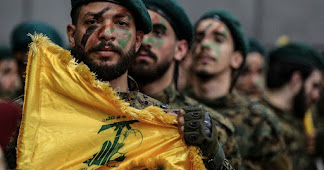The Middle East Conflicts in the Current Scenario: A Comprehensive Review
Introduction
The Middle East remains a venue of great geopolitical instability, with recent hostilities raising highly worrying implications for regional and world security. Conflicts have upped their tempo across Israel, Iran, Lebanon, Syria, and Gaza as renewed military actions along with political maneuvers further destabilized an already fragile landscape. This paper reviews the significant events, shifting power, and possible long-term consequences of these conflicts.
1. Escalation Between Israel and Iran
The escalations between Israel and Iran are unprecedented, coming off a string of military attacks. Recently, Israel declared over 200 drones and ballistic missiles fired off from Iran, leading to wave after wave of retaliatory airstrikes by Israel on the entire Iranian asset along the region. The United Nations has warned that the area is "on the brink" of a full-scale war, appealing for maximum restraint from all parties. Iran claimed it had the right to defend itself in this manner, saying they were in response to previous Israeli attacks on their diplomatic premises in Damascus.
2. Hezbollah and Lebanon: Impact of Israeli Strikes
The escalated military operations by Israel in Lebanon have weakened Hezbollah, the strong strategic ally of Iran. According to reports, most of the top Hezbollah leaders, including Hassan Nasrallah, were eliminated during the strikes by Israel. More than 1.2 million people have also been displaced in Lebanon, which are now facing a grave humanitarian crisis due to continuous aerial bombardments. Over 2,141 people, according to the Lebanese Health Ministry, have lost their lives since the escalations began; while others reported wounded were 10,099 in the conflict.
3. Gaza and West Bank Situation
Gaza has also been subjected to intense shelling by Israeli troops, killing dozens of people in the past weeks. The West Bank has also not been spared, with five militants killed in the city of Nablus the Israeli military reported. According to the Palestinian Health Ministry, over 740 Palestinians have been killed in the West Bank throughout the year, making it one of the deadliest periods in the history of the territory.
4. US and International Involvement
The United States continues to support Israel but militarily supports the country while simultaneously forcing it to de-escalate. US leaders, including VP Kamala Harris, are sounding alarm that the conflict increasingly threatens to raise into a wider regional war should Israeli counterattacks against Iran prolong.
5. The Scrambled Balance of Power in the Middle East
The war dramatically changes the balance of power in the region and tried Iran's influence. The Israeli strikes were aimed at reducing the influence of Iran over its proxy forces, including Hezbollah and Hamas, and try to prompt Tehran to retaliate more directly. "This war may leave the Middle East in an inescapable quagmire of perpetual war with no clear endgame in sight.
6. Humanitarian Crisis and International Response
The humanitarian crisis in Gaza and Lebanon is disastrous. In Lebanon, more than 1,000 centers, including schools and medical centers, are now serving as shelters for families who have lost their homes. However, Gaza has experienced totally devastating airstrikes, and whole families are now left to wonder where their next meal will come from. Proponents of the ceasefire could not broker a deal since attempts at diplomatic solutions by Egypt, Qatar, and the United States are being ignored because of the the violence continuing throughout.
Conclusion
The Middle Eastern conflicts are now at a critical juncture. While direct hostilities between Israel and Iran continue to escalate, losses suffered by Hezbollah and Hamas are high; millions of innocent civilians are caught in the crossfire, and the region continues to look more uncertain than ever. Global leaders, meanwhile, seem unable to contain the violence as the risks of a broader war grow with each passing day. This is a call for all individuals within the international community to take action not only toward preventing further escalation but also to work toward the root causes of the conflicts that still continue to fuel these wars.
For more detailed analysis and live updates on these issues, follow our "War Analysis" blog as we continue to provide in-depth coverage of events on the global stage.





.png)



0 Comments